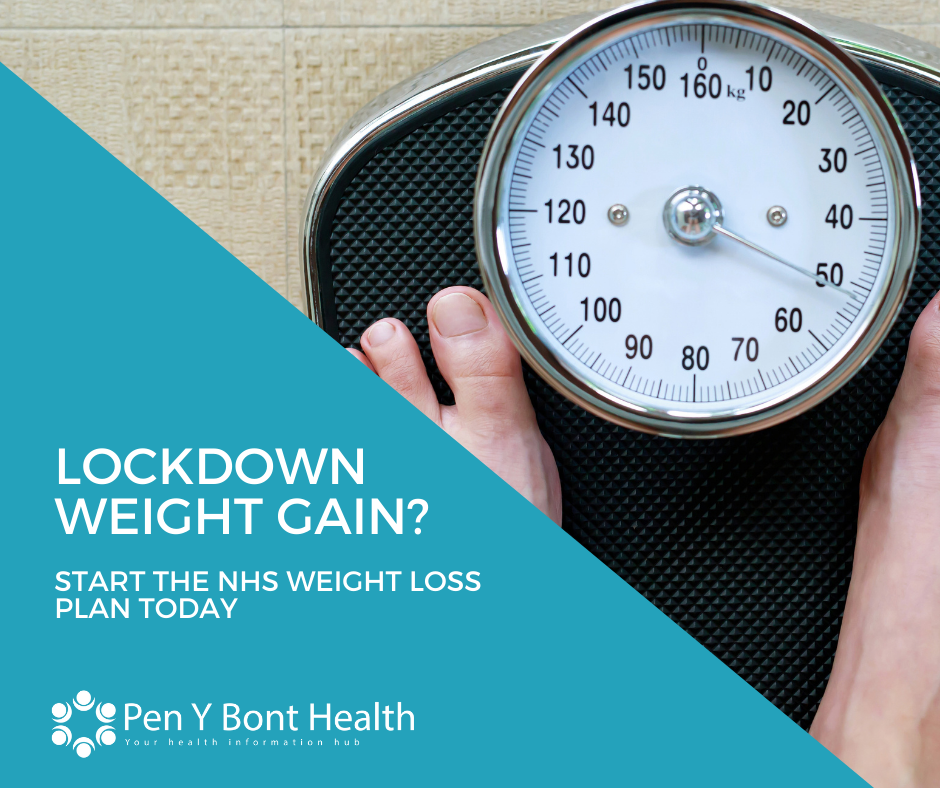 Start the NHS weight loss plan today.
Start the NHS weight loss plan today.
With just over 3 months left to go until lockdown restrictions are lifted on 23rd June and socialising can resume, many people will be, if they haven’t already, starting to think about losing the extra weight gained over lockdown.
The last year has seen many people gain weight through a combination of factors. Our daily routines have been thrown into disarray. Sports stopped, gyms closed, and our activity levels dropped considerably; combine this with the fact that we probably didn’t change our eating habits to reflect our lack of activity and in many cases will have increased our calorie intake through being at home more and in close proximity to the kitchen, it really is unsurprising to learn that according to the BBC 48% of adults have put on weight over the last year.
Back in 2019 over 60% of the Welsh population were overweight or obese, it almost goes without saying that this figure will have increased over the last 12 months of lockdowns. Obesity is preventable. Obesity is usually caused by eating and drinking too much and moving too little. The result of consuming more calories, particularly those in fatty and sugary foods, than you burn off through physical activity, is that the excess energy from the food is stored by the body as fat. Read more about obesity
Know your BMI – BMI calculator
It is important to take a measured, realistic, and practical approach to losing weight. In a year where so much has been outside of our control the emphasis needs to be on changing habits for health reasons rather than on weight loss purely for a number on the scales. The main principle in controlling your weight is to understand the relationship between the calories that you eat and the calories that you burn through movement, daily activities and exercise (calories in v’s calories out).
In really simple terms, in order to lose weight, you need to have a calorie deficit (take in less calories than you burn).
People who are most successful at cutting calories can maintain the pleasure of eating without feeling deprived. Drastic changes to your diet/lifestyle are often unsustainable so take a gentler approach and reduce calories in different ways such as:
1) Increase your steps!
2) Reduce your portion sizes!
3) Drink water instead of high calorie drinks.
4) Go without condiments and sauces.
5) Commit to an easy exercise program of 20 mins a day – consistency is key!
As sports clubs gear up for welcoming their members back and leisure centres can once again open their doors, activity levels will naturally increase. Getting back to pre-lockdown fitness won’t happen over night and you shouldn’t expect it to.
The best way to get started is to breakdown your fitness/weight goals across a certain number of months. Start slowly and build up your stamina, motivation, and determination gradually. Your news feeds and timelines are probably full of experts claiming to help you lose weight if you pay to sign up to their program, however the NHS offer a FREE weight loss guide which includes a free 12-week diet and exercise plan here.
A 12-week plan could help you lose between 12 – 24lbs! It is designed to help you lose the weight gradually and you should not be looking to lose more than 1 or 2lbs per week.
